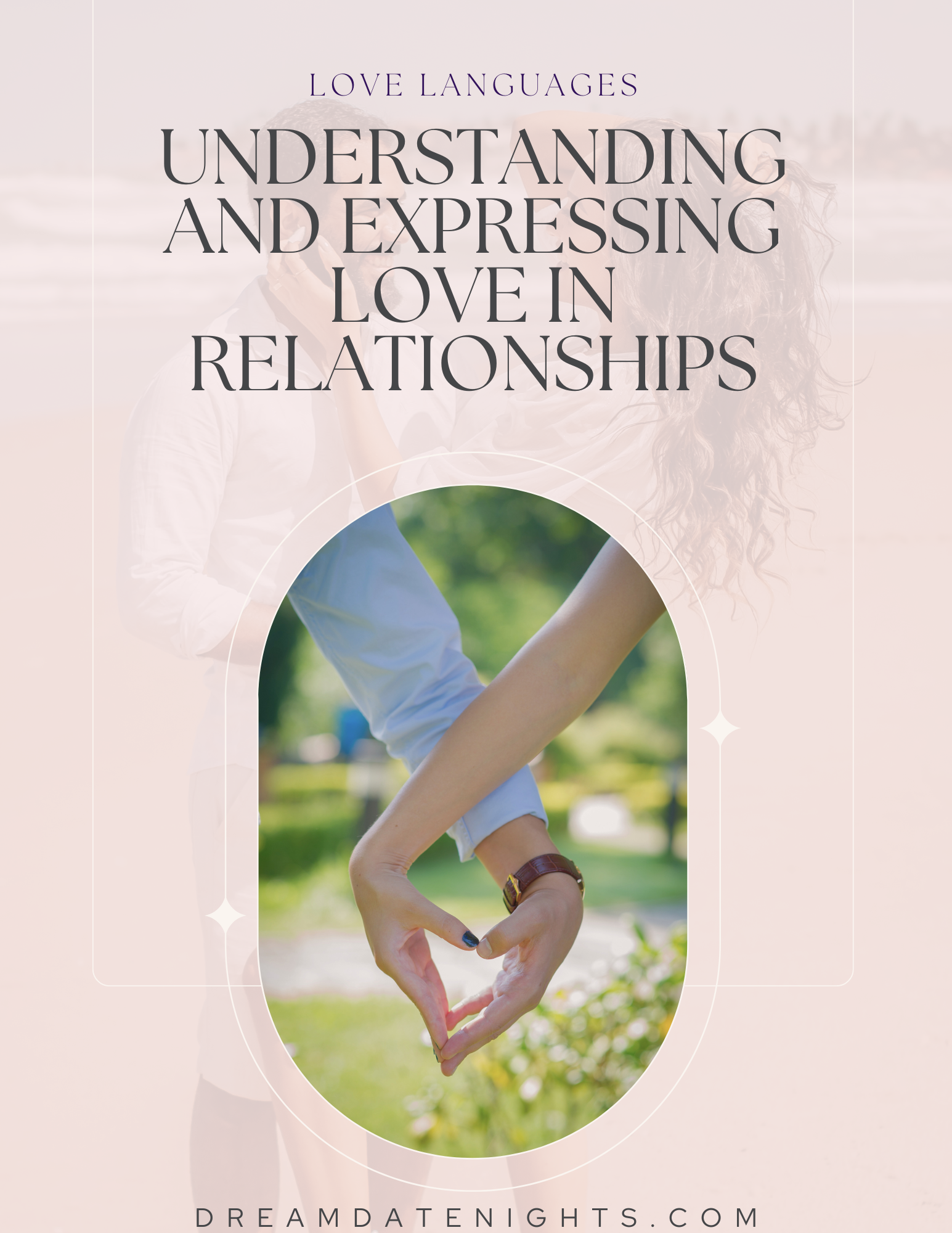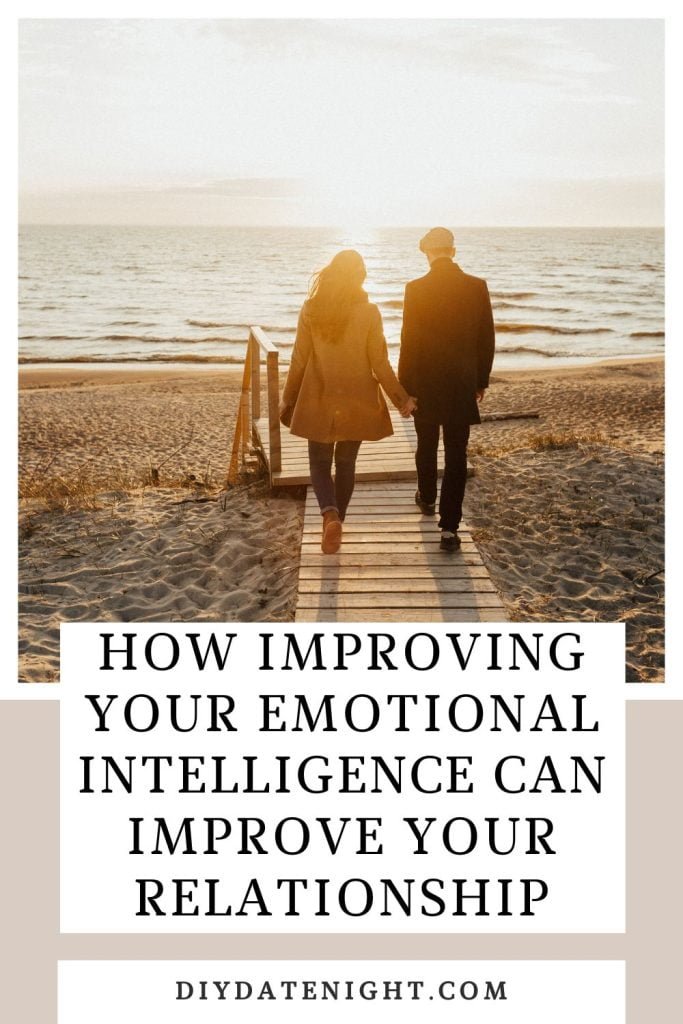How Improving Your Emotional Intelligence Can Improve Your Relationship
Do you want to strengthen your relationship and deepen your emotional connection with your partner? Discover how improving your emotional intelligence can make a significant difference.
By understanding and managing your emotions, enhancing empathy and communication skills, and developing self-awareness and self-regulation, you can build trust and foster a stronger emotional bond.
There are some affiliate links below, but they are all products I highly recommend. For more info, view my disclosure.
Resolving conflicts through emotional intelligence and nurturing this skill in your relationship can lead to long-lasting happiness and fulfillment. Let's explore the ways you can enhance your emotional intelligence for a better relationship.

The Importance of Emotional Intelligence in Relationships
The importance of emotional intelligence in relationships can't be overstated. When you have a high level of emotional intelligence, you are better able to understand and manage your own emotions, as well as empathize with others. This is crucial in building and maintaining healthy relationships.
When you are emotionally intelligent, you are more aware of your own feelings and can communicate them effectively to your partner. You are also able to recognize and understand their emotions, which helps you respond in a supportive and empathetic way.
Emotional intelligence also helps in resolving conflicts. When you are emotionally intelligent, you are less likely to react impulsively and lash out during an argument. Instead, you can calmly express your emotions and listen to your partner's perspective without judgement. This can lead to more productive discussions and finding mutually beneficial solutions.
Emotional intelligence fosters trust and intimacy in relationships. By being in tune with your own emotions and those of your partner, you can create a safe and supportive environment where both of you feel comfortable opening up and being vulnerable. This deeper level of emotional connection strengthens your bond and helps you navigate the ups and downs of life together.

Understanding and Managing Your Emotions
Understanding and managing your emotions can greatly enhance your relationship. Recognize and acknowledge your own emotions before you can effectively communicate and connect with your partner. When you understand your emotions, you can express yourself more clearly, which promotes healthier communication and allows your partner to better understand your needs and desires.
Managing your emotions is equally important. It involves being aware of your emotional triggers and learning how to respond to them in a constructive way. This can prevent unnecessary conflicts and misunderstandings in your relationship. For example, if you tend to get angry easily, learning strategies to calm yourself down can prevent arguments from escalating.
By understanding and managing your emotions, you can also empathize with your partner better. Empathy allows you to put yourself in their shoes and understand their feelings and perspectives. This leads to a deeper connection and fosters a more supportive and loving relationship.
Emotional intelligence enables you to resolve conflicts more effectively. When you are in control of your emotions, you can approach disagreements with empathy and understanding, rather than defensiveness or aggression. This promotes a healthier resolution and strengthens your bond as a couple.

Enhancing Empathy and Communication Skills
To enhance your empathy and communication skills, try practicing active listening and expressing your understanding and support to your partner. Active listening involves fully focusing on what your partner is saying without interrupting or formulating a response in your head.
Instead, make an effort to truly understand their perspective, feelings, and needs. Show your partner that you understand by paraphrasing what they said and reflecting it back to them. For example, you could say, “It sounds like you're feeling frustrated because I didn't take out the trash like I said I would. Is that right?”
This demonstrates that you are actively engaged in the conversation and validating their emotions. Additionally, expressing your understanding and support is crucial for building trust and connection in your relationship.
Let your partner know that you are there for them and that their feelings matter to you. Offer words of encouragement and validation, such as “I can see why that would be difficult for you. I'm here for you and we'll work through this together.”
By practicing active listening and expressing understanding and support, you can greatly improve your empathy and communication skills, leading to a stronger and more fulfilling relationship.

Grab Our FREE Love Languages Guide!
Love is a universal language, but did you know that people express and receive love in different ways? Discover the concept of love languages and how they can transform your relationship!
Developing Self-Awareness and Self-Regulation
Developing self-awareness and self-regulation can greatly enhance your emotional intelligence and contribute to a healthier and more harmonious relationship.
By becoming more self-aware, you can gain a deeper understanding of your own thoughts, emotions, and behaviors. This awareness allows you to recognize patterns and triggers that may negatively impact your relationship.
With self-regulation, you can learn to manage your emotions in a healthy and constructive way, avoiding impulsive reactions that can harm your connection with your partner.
When you are self-aware, you are better equipped to communicate your needs and feelings to your partner. You can express yourself in a calm and assertive manner, leading to more effective and open discussions. Additionally, self-regulation helps you to control your reactions during conflicts or challenging situations. Instead of responding with anger or defensiveness, you can choose to respond with empathy and understanding.
Developing self-awareness and self-regulation allows you to take responsibility for your actions and their impact on your relationship. You can acknowledge your mistakes and make efforts to improve and grow.
This level of self-awareness also enables you to empathize with your partner's perspective and be more understanding of their needs and emotions.
Building Trust and Emotional Connection
Building trust and emotional connection is crucial for fostering a strong and healthy relationship. When you prioritize building trust and emotional connection with your partner, you create a solid foundation for a lasting bond.
Trust is the cornerstone of any relationship, and it is built over time through consistent actions and open communication. By being reliable and keeping your promises, you show your partner that they can depend on you. This helps to establish a sense of safety and security within the relationship.
Emotional connection involves being attuned to your partner's emotions, actively listening to them, and empathizing with their experiences. When you make an effort to understand and validate your partner's feelings, you create a deep emotional bond. This connection allows you both to feel seen, heard, and understood, which strengthens the emotional intimacy between you.
To build trust and emotional connection, be vulnerable with your partner. Opening up about your fears, insecurities, and past experiences can create a space for honesty and authenticity. It also encourages your partner to reciprocate and share their own vulnerabilities. By being willing to be vulnerable, you demonstrate a willingness to connect on a deeper level.

Resolving Conflict Through Emotional Intelligence
Resolving conflict through emotional intelligence requires active listening and empathizing with your partner's perspective. When you find yourself in a disagreement, it's crucial to truly hear what your partner is saying.
This means putting aside any preconceived notions or assumptions and focusing on understanding their point of view. Actively listening involves giving your full attention, maintaining eye contact, and responding with phrases like “I hear you” or “I understand.”
By doing so, you validate their feelings and show that you genuinely care about their experience.
Additionally, empathizing with your partner's perspective can help de-escalate the conflict and foster a sense of understanding. Put yourself in their shoes and try to see the situation from their point of view.
Recognize that their emotions are valid, even if you don't necessarily agree with their stance. Expressing empathy can be as simple as saying, “I can understand why you feel that way.”
Resolving conflict through emotional intelligence also involves managing your own emotions. Stay calm and composed, even when faced with heated discussions. Take a moment to breathe and collect your thoughts before responding.
Remember that conflict resolution is not about “winning” but rather finding a resolution that satisfies both parties. By maintaining emotional intelligence, you can navigate conflicts in a healthy and productive manner, ultimately strengthening your relationship.
Nurturing Emotional Intelligence for Long-lasting Relationships
Nurturing emotional intelligence in relationships requires actively practicing empathy and effective communication. Understand and validate your partner's emotions, even if you may not agree with them.
Showing empathy means putting yourself in their shoes and trying to understand where they're coming from. This can help create a safe space for open and honest communication.
Effective communication is key in nurturing emotional intelligence. It involves actively listening to your partner, without interrupting or judging them. It means expressing your own emotions and needs in a clear and respectful manner. Taking the time to communicate can prevent misunderstandings and build trust in your relationship.
Another way to nurture emotional intelligence is by practicing self-awareness. This means being aware of your own emotions, triggers, and reactions. By understanding yourself better, you can communicate your needs and boundaries, and also be more understanding towards your partner's emotions.
Practice patience and understanding. Emotional intelligence requires time and effort to develop. It's not always easy, but by being patient with yourself and your partner, you can create an environment that fosters emotional growth and strengthens your relationship.
Ready to improve your communication? 21 Ways To Be A Better Communicator In Your Relationship


Hi, We’re Natasha & Dan!
We love travel, puzzles, and finding fun in the little things. When we’re not traveling, we live in the mountains of Colorado home with our two crazy rescue pups, Roxy & Rico.






